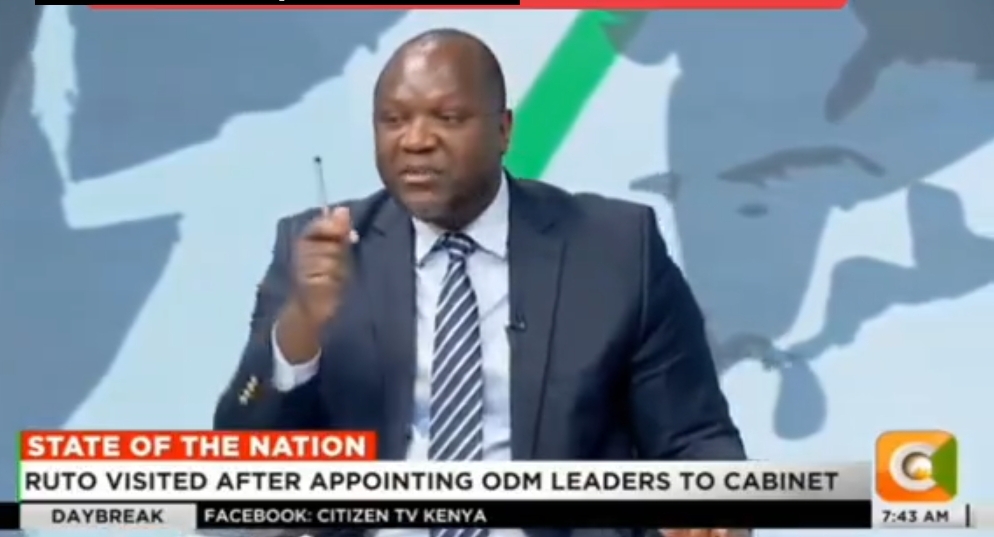Lawyer Willis Otieno raised concerns about the Kenya Kwanza rally held in Kisumu, claiming that individuals were allegedly paid to attend the event.
According to Otieno, the tactic involved distributing white handkerchiefs to participants, symbolizing their involvement.
This gesture seemed to hint at orchestrating crowd numbers rather than genuine support for the party.
Otieno further criticized Kenya Kwanza, arguing that their leaders were disconnected from the struggles of ordinary Kenyans, with leaders flaunting luxury brands while people suffered economically.
Also Read
- Govt Calls on Kenyans to Submit 2026 Finance Bill Ideas
- Deputy IG’s Nephew Charged for Fake Police Recruitment Scheme
- CCTV Footage Reveals Final Moments of 12-Year-Old Girl Found Murdered in Nairobi Estate
- Rigathi Gachagua Blames President Ruto After Cow Disrupts His Rally in Mwiki
- Kipchumba Murkomen Warns Gen Zs May Avoid Marriage, Urges Parents to Pray: “Tusipochunga Watakataa”
Otieno’s observations highlight a recurring concern in Kenyan politics, where political parties often mobilize crowds through financial incentives rather than authentic engagement.
This practice, he argues, undermines the democratic process by distorting the true representation of public sentiment.
Furthermore, his critique extends to Kenya Kwanza’s leadership, pointing out a disconnect between their policies and the realities faced by many citizens.


